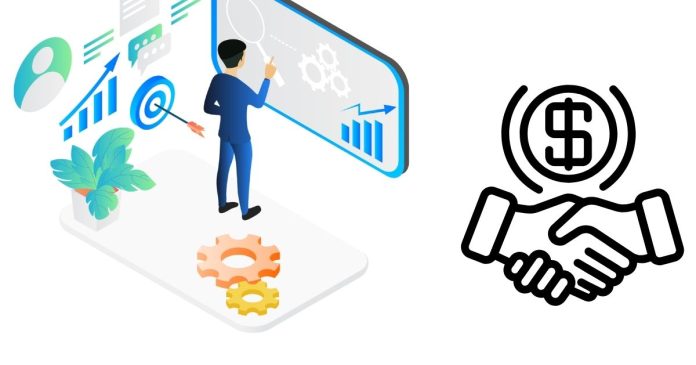In today’s business world, managing vast amounts of information effectively is crucial for decision-making, operational efficiency, and strategic planning. A Management Information System (MIS) is a tool that helps organizations collect, process, store, and distribute information to ensure informed decisions and smooth operations.
MIS is more than just software or hardware; it encompasses people, processes, and technology working together to provide actionable insights for managers and stakeholders. In this blog, we’ll delve into what MIS is, its components, benefits, types, and its role in modern businesses.
What is MIS?
A Management Information System (MIS) is an integrated framework used to manage data and provide information that supports the decision-making processes within an organization. MIS collects data from various sources, processes it into meaningful information, and delivers it he right people at the right time.
Key Features of MIS:
- Data Collection and Integration: Gathers data from various internal and external sources.
- Processing and Analysis: Converts raw data into meaningful insights using algorithms, dashboards, and reports.
- Decision Support: Provides managers with relevant information for planning, monitoring, and decision-making.
- Automation: Streamlines repetitive processes, reducing manual intervention.
Components of MIS
MIS is composed of three primary components:
1. People:
People are the users of the system, including:
- End Users: Managers, executives, and staff who use the system for decision-making.
- IT Professionals: Developers and administrators who manage and maintain the system.
2. Technology:
This includes the hardware, software, and network infrastructure that support MIS.
- Hardware: Computers, servers, and networking devices.
- Software: Applications like databases, analytics tools, and reporting systems.
- Networks: The connectivity required for data sharing and communication.
3. Processes:
The workflows and procedures that define how data is collected, processed, and distributed. This ensures the system operates smoothly and delivers accurate information.
Functions of MIS
MIS serves several critical functions in an organization:
1. Data Storage:
Stores large volumes of data in an organized manner for easy retrieval.
2. Information Processing:
Transforms raw data into meaningful reports and visualizations.
3. Decision Support:
Provides timely and relevant information for managerial decision-making.
4. Performance Monitoring:
Tracks organizational performance metrics to ensure alignment with goals.
5. Planning and Forecasting:
Uses historical data and trends to assist in planning and predicting future outcomes.
Types of MIS
MIS can be categorized based on its functionality and application:
1. Transaction Processing System (TPS):
Handles routine operations such as payroll, inventory management, and order processing.
2. Decision Support System (DSS):
Helps managers make informed decisions by analyzing data and presenting options.
3. Executive Information System (EIS):
Provides high-level summaries of critical information for executives.
4. Customer Relationship Management (CRM):
Focuses on managing customer interactions and improving relationships.
5. Enterprise Resource Planning (ERP):
Integrates various business processes like finance, HR, and supply chain into a unified system.
Benefits of MIS
Implementing an effective MIS offers numerous advantages:
1. Improved Decision-Making:
MIS provides accurate and timely information, enabling better decisions.
2. Enhanced Efficiency:
Streamlines processes, reduces redundancy, and saves time.
3. Better Resource Management:
Helps allocate resources effectively by providing insights into usage patterns.
4. Increased Productivity:
Automation of repetitive tasks frees employees to focus on strategic activities.
5. Data-Driven Strategy:
Facilitates long-term planning based on reliable data and trends.
Challenges of MIS
Despite its advantages, MIS has its challenges:
1. Implementation Costs:
Developing and deploying an MIS can be expensive, especially for small businesses.
2. Data Security:
Handling sensitive information requires robust cybersecurity measures.
3. System Integration:
Integrating MIS with existing systems can be complex.
4. User Training:
Employees need adequate training to use the system effectively.
Examples of MIS in Action
- Retail:
MIS tracks sales, manages inventory, and predicts demand trends in retail chains like Walmart or Amazon. - Healthcare:
Hospitals use MIS to maintain patient records, schedule appointments, and manage billing systems. - Finance:
Banks use MIS for loan processing, fraud detection, and customer relationship management.
Future of MIS
With advancements in technology, MIS is evolving rapidly. Trends like artificial intelligence, big data, and cloud computing are transforming how organizations manage information. The future of MIS lies in:
- Predictive Analytics: Using AI to predict outcomes and trends.
- Real-Time Data: Delivering instant insights for quicker decision-making.
- Cloud-Based Solutions: Enhancing scalability and accessibility.
Conclusion
A Management Information System (MIS) is a cornerstone of modern business operations. It bridges the gap between raw data and actionable insights, empowering organizations to make informed decisions. While implementing and managing an MIS requires investment and expertise, the long-term benefits in efficiency, decision-making, and strategic planning are invaluable.
As technology continues to evolve, the role of MIS will only grow, making it an indispensable tool for businesses looking to thrive in the information age.


